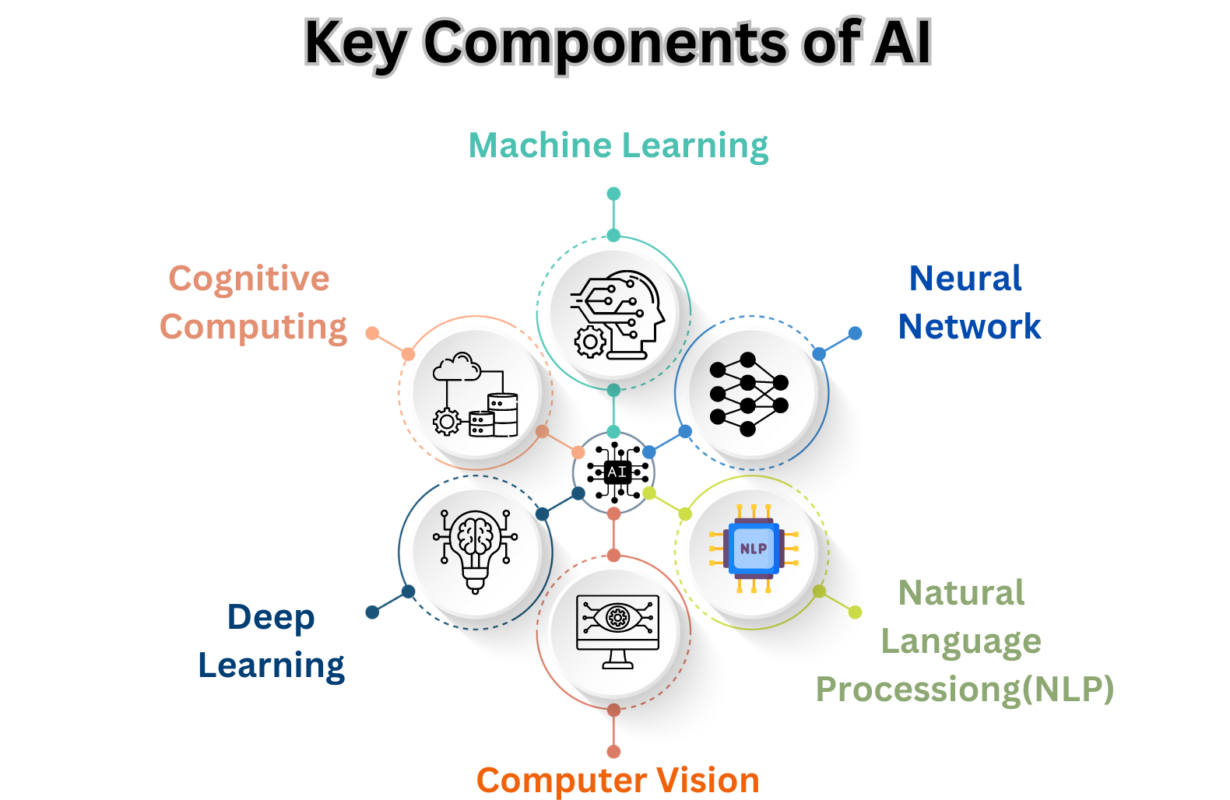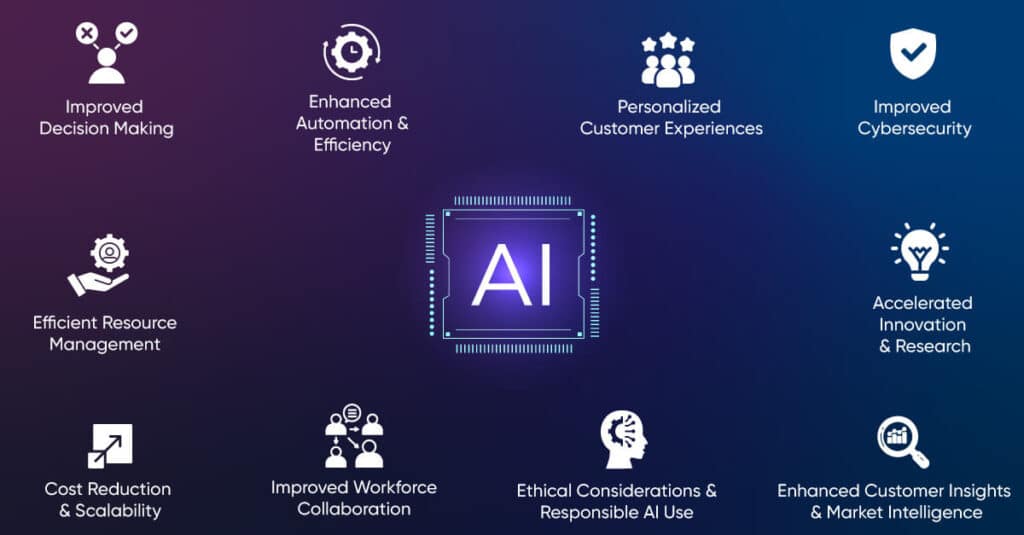Modern business evolves at an incredible pace, and to remain competitive, companies must adopt innovative technologies. One of the key technologies transforming management, analysis, and customer interaction is artificial intelligence (AI). AI development for business has become not just a trend but a necessary step toward achieving success in the digital age.
What is AI, and how is it applied in business?
Artificial intelligence is a technology that allows systems to mimic human thinking, learn from data, and perform tasks that require intelligence. Through machine learning algorithms and data analysis, AI finds applications in various areas of business, including automation, forecasting, personalization, and process management.

Key applications of AI:
- Process Automation. Routine and repetitive tasks (e.g., document processing, payroll calculations, or order management) are completed faster and more accurately, reducing employee workload and minimizing human error.
- Data Processing. AI analyzes large volumes of data and identifies patterns that are impossible to detect manually. This is especially useful for marketing, sales, and financial analysis.
- Customer Service. AI-powered chatbots and virtual assistants improve customer support by providing instant answers to questions and personalized recommendations.
- Forecasting and Risk Management. Machine learning algorithms help companies predict customer behavior, assess credit risks, and develop strategies to prevent losses.

Benefits of AI Development for Business
- Cost Reduction.
AI solutions automate many processes, reducing the need for manual labor and lowering operational expenses. For example, chatbots reduce customer service costs, while production automation decreases manufacturing expenses. - Increased Productivity.
AI works faster and more efficiently than humans and can process vast amounts of data in minimal time. This accelerates processes and allows teams to focus on more strategic tasks. - Improved Decision-Making.
AI provides precise and detailed data that enables executives to make informed and effective decisions. For example, AI-driven data analysis systems help understand customer needs and optimize marketing campaigns. - Personalization.
AI helps companies better understand their customers and tailor offerings to their individual needs. This increases customer loyalty and boosts revenue. - 24/7 Operation.
Unlike humans, AI systems can operate without breaks, which is especially important for support services and real-time data processing. - Competitive Advantage.
Companies that implement AI respond faster to market changes, better understand their customers, and manage internal processes more efficiently. This keeps them ahead of competitors.
Examples of AI Use Across Industries
- Retail.
AI helps optimize supply chains, forecast demand, and personalize customer offerings. For example, recommendation systems in online stores increase conversion rates by suggesting products that truly interest customers. - Banking Sector.
Banks use AI to analyze transactions, detect fraud, and manage risks. Virtual assistants also simplify customer service processes. - Manufacturing.
AI optimizes processes on production lines, reduces costs, and improves product quality. Predictive maintenance prevents equipment breakdowns. - Marketing.
AI analyzes customer behavior, segments audiences, and helps create targeted advertising campaigns. - Healthcare.
AI is used for diagnosing diseases, analyzing medical data, and creating personalized treatment plans.
Conclusion
AI development for business is a powerful tool that helps companies optimize processes, enhance customer experiences, and achieve new heights. Implementing artificial intelligence allows businesses to save resources, increase productivity, and strengthen their competitive position.
In the coming years, AI will become increasingly accessible and versatile, opening up new horizons for businesses. Companies that begin leveraging its capabilities today will gain a significant advantage in the market and solidify their positions in the digital era.

